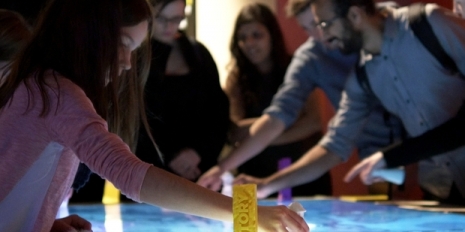
Five Tauranga-based projects have taken out top honours at the national Best Design Awards.
The Inverse Conditioning System designed by Locus Research and Roholm Ltd won a gold pin for the concept/environmental product category.
The hair product's removable, extruded aluminium Cold Cores are frozen to set the sub-zero temperature. When run through the hair like a traditional hot tool, the cold temperatures lock in moisture rather than normal hot hairstyling tools which evaporate the inner moisture and damage hair. Extensive testing in New Zealand and California showed a 20 per cent increase in tensile strength and a 23 per cent decrease in breaking extension.
Locus Research managing director Tim Allan said the award was "very cool".
"Obviously for the business it's great because it recognises the product from which we've got a business that's just been formed around a new product like Inverse."
Mr Allan said there were a number of excellent local products that were finalists and it was hard to know how well they would do. "With Inverse I think it had a reasonable chance because it was quite a unique product," he said.
Mount Maunganui company Devcich & Co won a gold pin in the graphic design communications category.
The company ran a roadshow called Portraits of Our Place on behalf of the Western Bay of Plenty District Council to engage with residents.
The roadshow headed to unexpected places within the Bay in a 1967 Bedford bus where debate raged over which of the posters and postcards created for the campaign were the best. Once they had people's attention, residents were asked to complete a short on-the-spot questionnaire. The campaign saw a 500 per cent increase in responses. The artwork created for the postcards and posters had since been posted to friends and family abroad and framed posters could be found in baches up and down the coast.
The limited edition prints and postcards are being sold in local service centres with proceeds used to fund the campaign.
Owner Brent Devcich said he was "quite shocked" by the win.
"We thought getting through to the finals was good enough but we got gold. We were chuffed. It's a massive shot in the arm for everyone that works here, to realise that their work is that standard," he said. "It was an amazing outcome. We couldn't have asked for more."
Mr Devcich said part of the success was the collaboration between his staff and the client. "It was the process that won at the end of the day."
It was also a win for the design community in Tauranga because it showed the talent already based in the area, he said. Another Mount Maunganui design studio, Flightless, won a gold pin for the interactive application category. It worked with the Auckland War Memorial Museum to develop a multi-user, physical-digital interactive table top aimed at 9 to 12-year-olds.
It was a treasure hunt-like game where visitors were tasked with being curators to hunt down objects related to a particular topic. Through use of written clues, colour coding and iconography, visitors moved around the table using their own physical game piece as their main interaction.
Tauranga-born company Think & Shift, which is now based in Auckland, won a silver pin for the retail spatial (up to 150sq m) category and was named runner-up emerging designer as well as a bronze pin for the hospitality and accommodation category. The retail spatial award was for a pop-up retail system for menswear label I Love Ugly. The system consisted of a set of free standing, knock down product display units including a clothing rack, a desk-like accessories cabinet, a tall-boy accessories cabinet, a point of sale counter, a storage bench, a storage cabinet, a free-standing changing room, a full-length mirror and a light box. It allowed the brand to fit out new permanent stores, department store concessions and Pop Up retail spaces overnight at a fraction of the previous cost and time required. For the hospitality and accommodation category the company designed a social space for students of Christchurch's Ilam Campus which could be used as a common room during the day and a bar at night.
Originally published by the Bay of Plenty Times